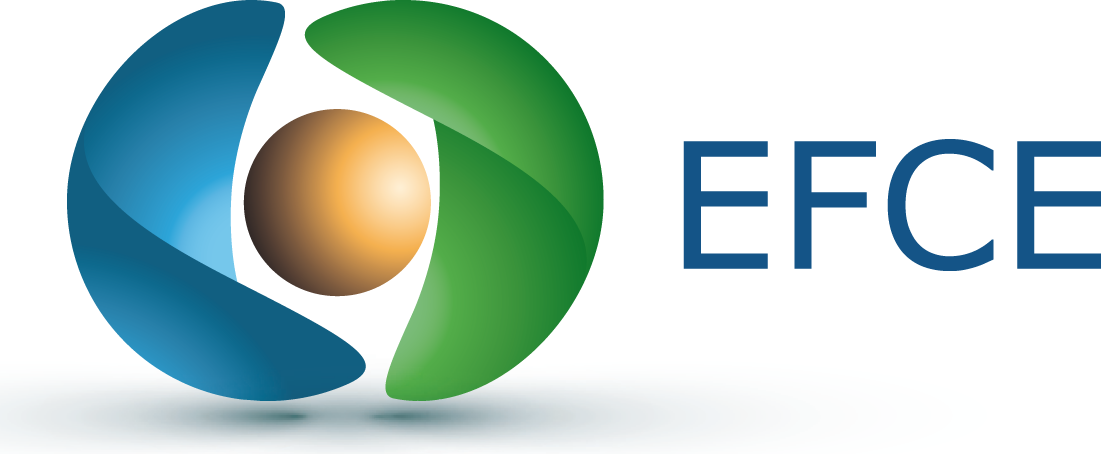Plenary Lectures
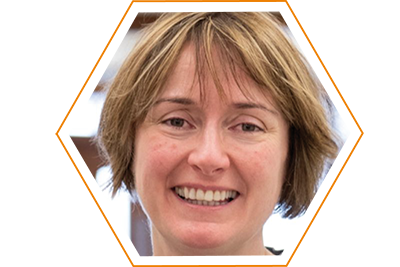
Prof. Aoife M. Foley
(Queen's University Belfast, UK)
Decarbonisation, Sustainable Development Goals and the great awakening
Aoife M. Foley is a Professor in the School of Mechanical and Aerospace Engineering and Editor in Chief of Elsevier’s Renewable & Sustainable Energy Reviews, a member of the Editorial Board of Elsevier’s Renewable Energy and an Editorial Panel member of the Institution of Civil Engineers Proceedings in Transport. I have a BE(Hons) (1996) in Civil Engineering and a PhD (2011) in Energy Engineering from University College Cork and an MScEng (1999) in Environmental & Transportation Engineering from Trinity College Dublin. She have a h-index of 31 (Scopus), 25 (Web of Science) and 36 (Google Scholar). She published over 100 international peer reviewed journal articles and numerous conference papers. She returned to academia in 2009 after 12 years in industry. Prior to joining the School of Mechanical and Aerospace Engineering in Queen’s University Belfast in 2011, she worked in the School of Engineering in University College Cork as a Lecturer and an Environmental Protection Agency (EPA) Research Fellow. While in industry she worked for ESB International, Siemens, PM Group and SWS Energy primarily in projects in the energy, waste, pharmaceutical and telecommunications. She is interested in the global sustainable energy transition, smart cities and transport systems. Another interest is the food energy water (FEW) nexus considering extreme weather events, global warming and the environment. A theme in my research interests, greenhouse gas emissions, energy economic and energy policy regulatory aspects in developed and developing countries.
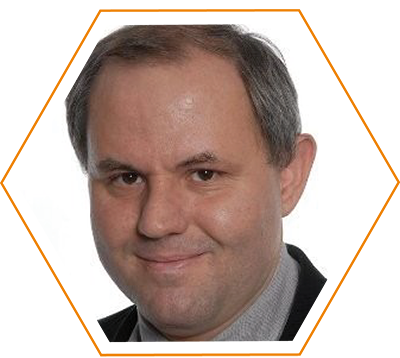
Prof. Markus Gahleitner
(Borealis Polyolefine GmbH, Linz, AU)
What is necessary for improving circularity of conventional polymers?
Markus Gahleitner is polymer research expert with more than 15 years of experience in industrial research.
He is focused on basic education in technical chemistry and economics, graduation in rheology of polymer melts.
He has more than 50 scientific papers in the fields of polymer crystallization, rheology, structure/property relations, blending and compounding including nanocomposites,
and more than 40 patents and applications in the polyolefin area
He has been highly involved in product development, catalyst implementation, processing optimization and application development.
Specialties: patenting & IPR, coaching & training.
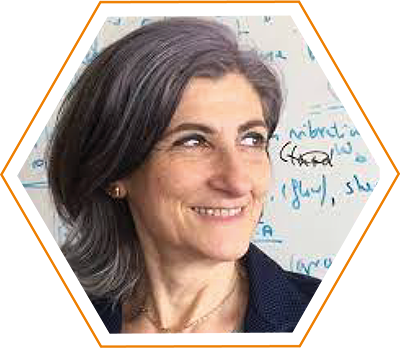
Prof. Raffaella Ocone
(Heriot-Watt University, Edinburgh, UK)
The role of chemical engineering in the energy transition
She have a Laurea (MEng) in Chemical Engineering from the Università di Napoli Federico II, Italy, and a MA and PhD from Princeton University, USA. Before joining Heriot Watt University, she was a Reader in Chemical Engineering in the Department of Chemical Engineering at the University of Nottingham, Lecturer at the Università di Napoli, and Visiting Professor at Louisiana State University, USA and at the University Claude Bernard Lyon, France. She has over 20 years experience in modeling complex systems, spanning from solid/gas suspensions, to complex reaction networks. Areas of current research are: Hydrodynamics of granular materials and particle laden flow, Continuum lumping of multi-component systems, Carbon capture (Chemical looping combustion and Pyrolysis of biomasses).
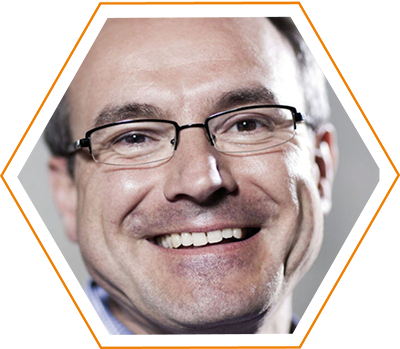
Prof. Bert M. Weckhuysen
(Utrecht University, Utrecht, The Netherlands, NL)
Towards the Refinery of the Future:
Advances in Operando Spectroscopy and Microscopy of Heterogeneous Catalysts
For years, Prof. Bert Weckhuysen has been trying to build a powerful camera to record what happens in a working catalytic solid. The long-term aim of this work is to bring this technology to a level that enables imaging catalysis at macro, meso and micro scales, from the reactor down to interactions between single atoms and molecules. He is a keen photographer, who has found a way to combine his hobby with his scientific interests in a way that significantly contributed to the significant technological advancement of the method ‘operando spectroscopy’, named by some colleagues and Weckhuysen himself. The term refers to a specialized form of in situ spectroscopy, in which measurements take place under realistic catalytic conditions of high temperature and pressure, empowering us to study catalysts in all their complexity and heterogeneity. Only this way can we accumulate enough knowledge to rationally design more efficient catalyst materials which, on one hand, are necessary to produce the energy and materials for the quickly increasing human population in a sustainable manner and, on the other hand, will help us to reduce the concentration of CO2 in the atmosphere.
MAIN TOPICS
There are eight sections covering the main congress topics. The ninth is the Wiley – VCH Poster Session.
Section 1
Global Thoughts
Low to zero emission technologies
Carbon dioxide economy
Water supply, management, reuse, purification
Food in the focus
Sustainability and circularity
Healthcare, hygiene, medicine and pharmacology
Section 2
Energy
Energy to carbon footprint ratio
Low energy cost processes
Renewable energy and energy storage, hydrogen as a fuel
Energy self-sufficiency
Clean energy
Photochemistry, solar cells and solar powered technologies, fuel cells
Energy saving processes and technologies
Batteries
Section 3
Matter In Motion
Continuous process design and optimization (batch to continuous, flow chemistry)
Process intensification and miniaturisation
Importance of heat recovery
Fluid flow and microfluidics, multiphase flow
Microreactors for real-life products and scaled-up technologies
Mixing
Separation processes
Scale up of electrified reactors
Section 4
Not Only Faster
Reaction engineering and kinetics
Homogeneous and heterogenous catalysis
Catalytic processes
Design, preparation and characterisation of catalysts
Catalytic reactors
Section 5
Particles
Advanced functional materials
Designed, printed, integrated, used materials, 3D printing
Particulate and microporous solids, low-risk advanced materials
Biomimetics
Functional films and nanostructures
Sensors and sensing objects and nano-objects
Hierarchical structures and nanoparticles
Polymers and polymer technologies, conductive polymers
Section 6
Green Issues
No waste technologies and zero waste plants
Production-trade-customer zero waste chains
Urban mining, waste management
Microplastics and endocrine disruptors
Biotechnologies, biomass and biomass processing
Membrane processes, adsortion
Air, soil and water pollution, pollution control
Green and supercritical chemistry
VOC reduction, ionic liquids
Processes for environment
Section 7
You must know
Chemical reactors – all aspects
Transport phenomena
Heat transfer processes and equipment
Distillation, extraction, SCF extraction, S-L separation, crystallisation
Thermodynamics, phase equilibria, multiphase processes
Chemical engineering computations and modelling, molecular dynamics, ab-initio calculations, mathematical predictions, neural networks
New and improved technologies
Chemical engineering and safety, prevention and loss control
Elimination of health and environmental hazards
Section 8
College
Educated chemical engineers
Teaching chemical engineering, new strategies, opportunities
Jobs in chemical engineering
Choosing chemical engineering as the field of studies – right or wrong?
Competitiveness of chemical engineers on the job market
Poster session
Special sessions and meetings
Multiphase flows in bubble columns
Organized by Dr. Sandra Orvalho, (https://orcid.org/0000-0002-5151-0014) and Prof. Martin Obligado (https://orcid.org/0000-0003-3834-3941). If you would like to join us, please submit an abstract for Lecture to:
- Section 3 – Matter In Motion/ [33] Fluid flow and microfluidics, multiphase flow
PUBLICATION POLICY
Authors not intending to submit a paper to the Congress special issue journal, or the authors whose contribution is not accepted for publication, are free to publish the papers at their will after the Congress. No Congress proceedings (except Congress special issue and Book of abstracts - see below) will be available.
CONGRESS SPECIAL ISSUE
CHISA 2024 offers to registered participants publication of their contributions as full papers in two Special issues:
Special issue of Separation and Purification Technology: the journal dedicated to the dissemination of novel methods for separation and purification in chemical and environmental engineering for homogeneous solutions and heterogeneous mixtures. This includes any separation and/or purification of liquids, vapours and gases, carbon capture and separation etc. The impact factor is 8.6.
Special issue of Chemical Engineering Research and Design: the journal for publication of high-quality, original papers covering a broad range of chemical engineering disciplines, e.g. fluid flow, heat and mass transfer, reaction engineering, particle technology, materials processing and product development, pharmaceutical engineering, process systems engineering etc. The impact factor is 3.9.
Upon the registration the CHISA authors will be asked to express their intention to submit a contribution as an article to one of those special issues. The outstanding papers will be then selected based on a standard peer review process.
Out of the scope of the two above mentioned Special issues, CHISA 2024 also offers the participants a possibility to submit their contributions in a standard way to the journal Acta Polytechnica. Acta Polytechnica is the peer-reviewed scientific journal without article processing charge published by the Czech Technical University in Prague.
Examples of the special issues from last Congresses can be found on:
CHISA 2022: https://onlinelibrary.wiley.com/doi/abs/10.1002/ceat.202370604
CHISA Virtually 2021: https://onlinelibrary.wiley.com/doi/abs/10.1002/ceat.202171101
CHISA 2018: https://onlinelibrary.wiley.com/toc/15214125/42/4
CHISA 2016: https://onlinelibrary.wiley.com/toc/15214125/40/5


